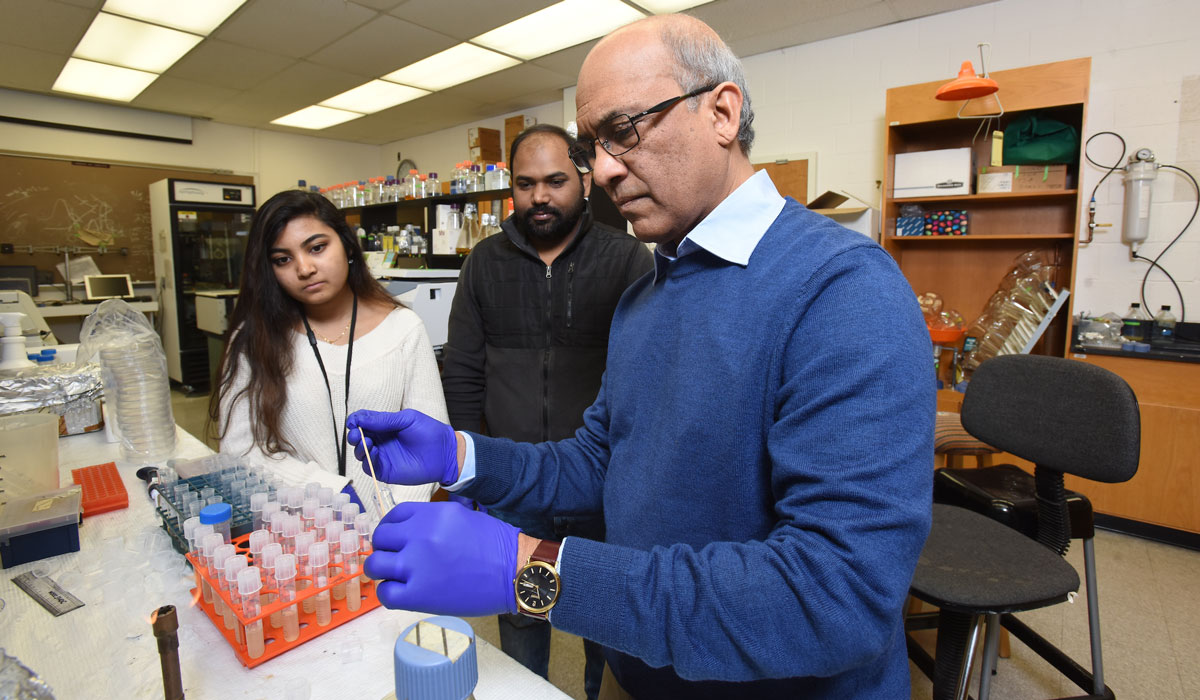

The Catholic University of America has announced the establishment of a research center that will focus on advancing biomedical technologies using a unique bacteriophage T4 technology developed by Biology Professor Venigalla Rao. He has been studying this virus for more than 40 years.
Rao, who will serve as the founding director of the center, is among the world’s top experts on viruses and associated biomedical applications such as vaccine development and genetic therapies. His lab has developed bacteriophage T4 virus platforms and vaccine delivery systems to deliver vaccines against biothreat agents such as anthrax and plague, and viruses such as HIV, coronavirus, and flu. This new center will work to convert the licensing agreement currently being negotiated between Advanced Phage Therapeutics Inc. and the University into vaccine products.
“The center will capitalize on Dr. Rao’s outstanding work over the last 40 years,” said Ralph Albano, the University’s vice provost for research. “In keeping with our tradition as a preeminent research university, this center will focus on the discovery and development of cutting edge technologies, while also preparing students to become the next generation of life science innovators. The technologies developed here have the potential to revolutionize human therapies and personalized medicine.”
The center will focus its efforts to generate external funding from governmental and nonprofit foundations for research aiming to treat genetic diseases, including sickle cell disease and muscular dystrophy. Other priorities will include creating additional intellectual properties, negotiating licensing agreements for genetic therapies, and establishing research opportunities for students and fellows in the biotechnology industry.
As the director for the center, Rao will be responsible for managing the center; assisting the University with fundraising efforts; securing individual, collaborative, and center-level grants in support of the center’s research; and mentoring and training undergraduate, graduate, and postdoctoral scholars.
“The center has been in discussions for many years and I am very excited to see it finally established and taking shape,” Rao said. “It is an honor to serve as its director and bring a broad and sustainable impact to the University. The center will create a new category of bacteriophage-inspired vaccines and gene therapeutics that will lead to unique research and development opportunities for the University and its students.”
Rao will share information about the new center, along with his own experience developing a coronavirus vaccine using CRISPR technology as the keynote speaker for this year’s Research Day, which will take place on April 15. For more information on Research day, visit research-day.catholic.edu.